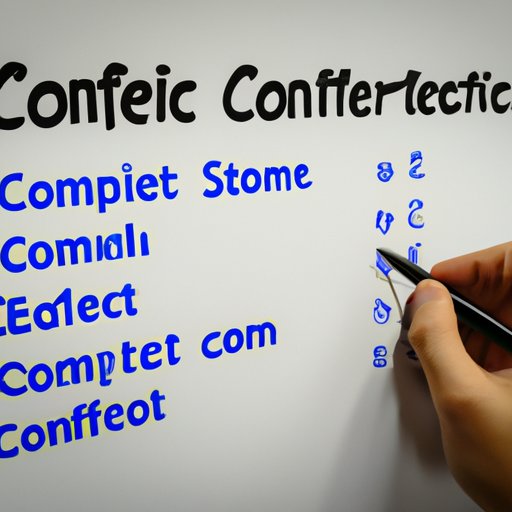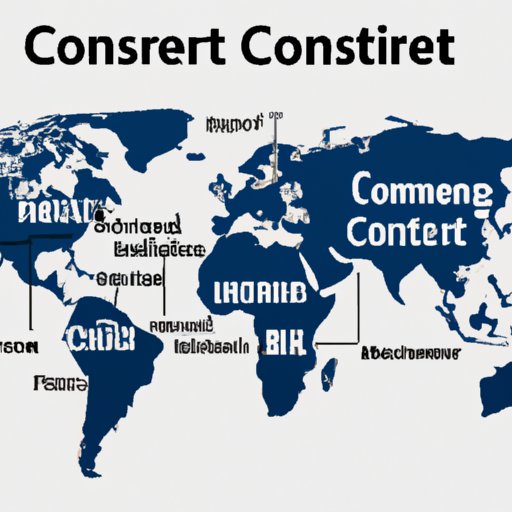Introduction
The Commerce Control List (CCL) is an important part of international trade and business. It is a comprehensive list of items that are subject to export controls, and it outlines the regulations and restrictions associated with exporting those items. In this article, we will explore what the CCL is, how it impacts businesses, and how it can be used to their advantage. We will also unpack the details of the CCL and provide a comprehensive guide to understanding it.

Exploring the Basics of the Commerce Control List
The CCL is a list of items compiled by the U.S. Department of Commerce’s Bureau of Industry and Security (BIS). These items are divided into 10 categories: nuclear materials, materials processing, electronics, computers, telecommunications, information security, sensors and lasers, navigation and avionics, marine, and aerospace and propulsion. Each item is assigned a specific Export Control Classification Number (ECCN), which is used to determine whether or not a license is required for exporting that item.
The CCL is designed to protect national security and foreign policy interests by controlling the export of items that could be used in weapons of mass destruction, terrorism, or destabilizing military modernization. It is also used to protect economic interests by preventing the unauthorized transfer of technology or intellectual property. The CCL is updated regularly to reflect changes in technology, and it is enforced by the BIS through civil and criminal penalties.
What Businesses Need to Know About the CCL
Businesses must comply with the regulations and requirements of the CCL in order to export items on the list. This includes obtaining the appropriate licenses, if necessary, and ensuring that the items are shipped to authorized destinations and end-users. Failure to comply with the CCL can result in civil and criminal penalties, including fines, prison sentences, or the revocation of export privileges.
The CCL is subject to several regulations, including the Export Administration Regulations (EAR) and the International Traffic in Arms Regulations (ITAR). The EAR applies to most items on the CCL, while the ITAR applies to items related to defense and military uses. Businesses must also abide by the rules and regulations of the country to which they are exporting, as well as any applicable international laws and treaties.
Unpacking the Details of the Commerce Control List
The CCL is distinct from other export control lists, such as the United Nations Security Council Sanctions List and the Wassenaar Arrangement Munitions List. The CCL is focused on items that have both civilian and military applications, while the other lists focus on items that are primarily used for military purposes.
It is important for businesses to understand how to determine if an item is subject to the CCL. To do this, they must identify the item’s Export Control Classification Number (ECCN) and compare it to the list of ECCNs in the CCL. If the ECCN is listed in the CCL, the item is subject to export controls and a license may be required for exporting it.
In some cases, a license may be required even if an item is not listed on the CCL. This is known as “deemed export” and applies when an item is shipped to a foreign person in the U.S., or when technical data is released to a foreign person. In these cases, a license may be required even if the item or data is not listed on the CCL.

A Comprehensive Guide to Understanding the Commerce Control List
Understanding the CCL can be a daunting task, but there are tools and resources available to help. The BIS website provides detailed information about the CCL, including access to the list itself and a searchable database of ECCNs. The website also provides links to the EAR and ITAR, as well as guidance documents and other resources.
Businesses should also familiarize themselves with the CCL’s guidelines for applying the list. These include determining the ECCN of an item, determining if a license is required, and understanding the different levels of control associated with each item. They should also familiarize themselves with the rules and regulations of the countries to which they are exporting.

How the Commerce Control List Impacts Global Trade
The CCL has both benefits and challenges for businesses. On the one hand, it helps to ensure that items with potential military applications are not exported without authorization. It also helps to protect economic interests by preventing the unauthorized transfer of technology or intellectual property. On the other hand, complying with the CCL can be a complex and time-consuming process, and businesses must pay close attention to the regulations and restrictions associated with each item.
Despite the challenges, the CCL can be used to businesses’ advantage. By understanding the list and its regulations, businesses can take advantage of the opportunities it provides for global trade. They can use the CCL to identify potential markets and customers, and to ensure that their exports are in compliance with the law.
Conclusion
The Commerce Control List (CCL) is an important tool for businesses engaged in international trade. It is a comprehensive list of items subject to export controls, and it outlines the regulations and restrictions associated with exporting those items. In this article, we explored what the CCL is, how it impacts businesses, and how it can be used to their advantage. We unpacked the details of the CCL and provided a comprehensive guide to understanding it. We also explored how the CCL impacts global trade and businesses.
By understanding the CCL and its associated regulations and restrictions, businesses can take advantage of the opportunities it provides for global trade. They can use the CCL to identify potential markets and customers, and to ensure that their exports are in compliance with the law. The CCL is an invaluable tool for businesses engaged in international trade.
(Note: Is this article not meeting your expectations? Do you have knowledge or insights to share? Unlock new opportunities and expand your reach by joining our authors team. Click Registration to join us and share your expertise with our readers.)
